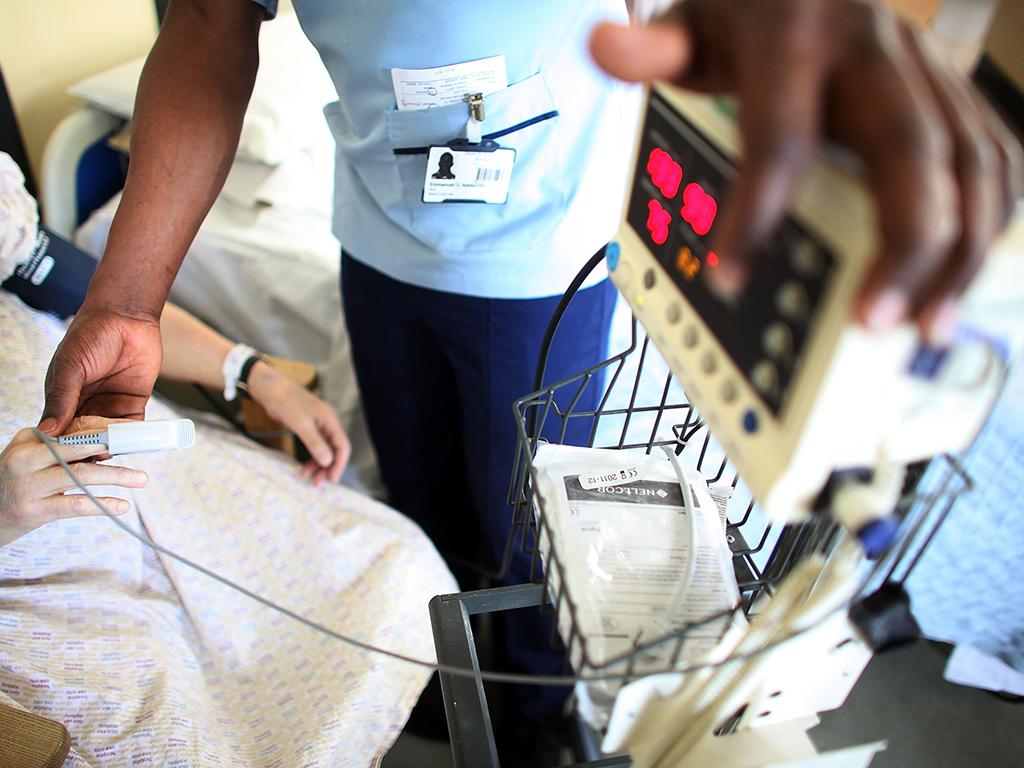Black, Asian and other ethnic minority NHS staff more likely to be bullied by colleagues, new report finds
Evidence of apparent discrimination in first national employee survey labelled ‘deeply concerning’

Your support helps us to tell the story
From reproductive rights to climate change to Big Tech, The Independent is on the ground when the story is developing. Whether it's investigating the financials of Elon Musk's pro-Trump PAC or producing our latest documentary, 'The A Word', which shines a light on the American women fighting for reproductive rights, we know how important it is to parse out the facts from the messaging.
At such a critical moment in US history, we need reporters on the ground. Your donation allows us to keep sending journalists to speak to both sides of the story.
The Independent is trusted by Americans across the entire political spectrum. And unlike many other quality news outlets, we choose not to lock Americans out of our reporting and analysis with paywalls. We believe quality journalism should be available to everyone, paid for by those who can afford it.
Your support makes all the difference.Black, Asian and other ethnic minority staff in the NHS are far more likely to be subject to harassment, abuse or bullying by colleagues, according to stark new findings from employee surveys.
The chief executive of the NHS in England said that evidence of apparent discrimination in the first national report of its kind was “deeply concerning”.
Overall, black and minority ethnic (BME) staff members were more likely than white colleagues to report bullying, harassment and abuse from other members staff in three out of every four hospitals in England.
In 81 per cent of hospitals, higher percentages of BME staff reported having been personally discriminated against by a manager.
Evidence of potential discrimination faced by staff in the NHS was highlighted in a landmark report two years ago which found that BME staff were treated less favourably than white staff in recruitment to senior jobs, were bullied more, and were more heavily victimised if they acted as a whistle-blower.
Simon Stevens, chief executive of NHS England, said that the new report, the first time data on the NHS Workforce Race Equality Standard (WRES) has been published nationally, provided “unvarnished feedback” for NHS managers about the situation faced by staff in their organisations.
“It confirms that while some employers have got it right, for many others these staff surveys are both deeply concerning and a clear call to action,” he said. “As this is the first year of the WRES, it provides a transparent baseline from which each employer will now be seeking to improve.”
In the worst-performing hospital, nearly 42 per cent of BME staff said they had been subject to bullying, abuse or harassment by colleagues, compared to just over 18 per cent of white staff. Across the NHS, on average 24 per cent of staff reported such experiences in the NHS Staff Survey of 2014.
However, the WRES found that there was little difference in levels of harassment or abuse from patients, relatives or the public reported by BME and white staff members. In the same 2014 survey, an average of 42 per cent of NHS staff reported such incidents.
Joan Saddler, co-chair of the NHS Equality and Diversity Council, said that NHS trusts had “traditionally collected, but generally failed to act upon” data indicating disparities between the experiences of white and BME staff.
Former Health Secretary Stephen Dorrell, now chair of the NHS Confederation, said that while NHS organisations had all signed up to measures to address inequalities, “the gap between rhetoric and reality remains uncomfortably large”.
“I believe that all NHS organisations should ensure that they are genuinely ‘equal opportunity employers’ and should adopt policies which ensure that all staff members receive the same positive opportunities,” he said.
Join our commenting forum
Join thought-provoking conversations, follow other Independent readers and see their replies
Comments